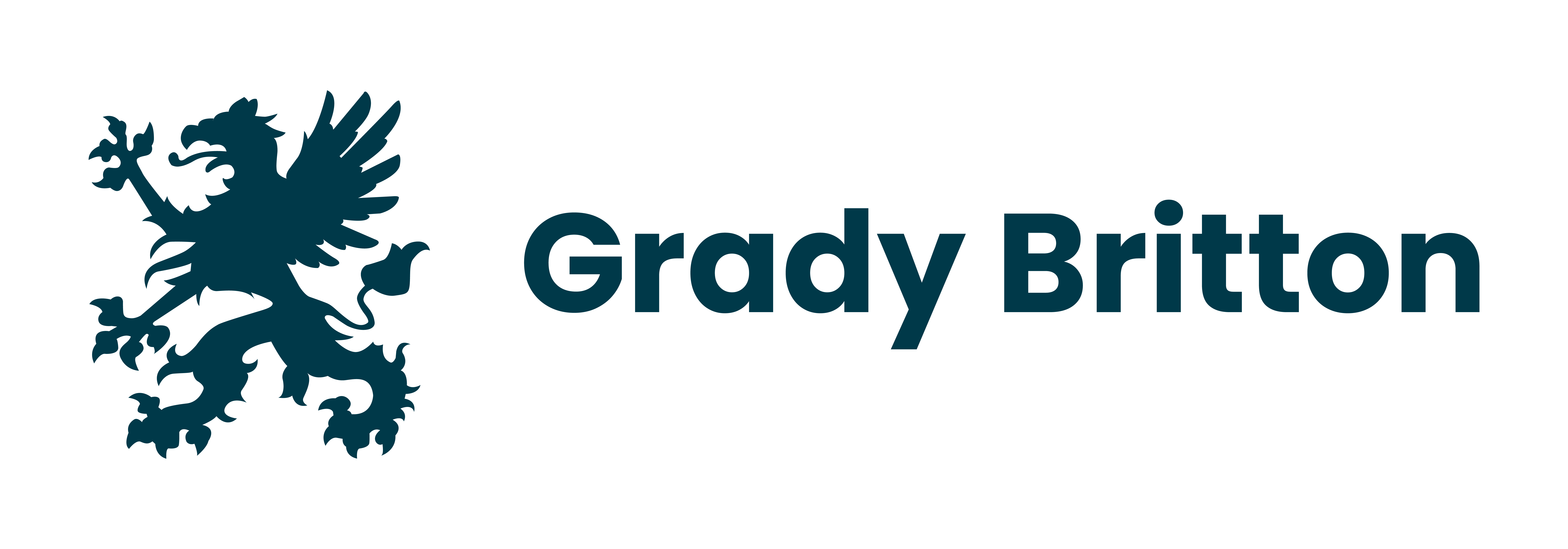

Grady Britton

Oregon, United States
July 2015
Advertising & market research
Service with Minor Environmental Footprint
United States
Grady Britton is a creative branding agency putting thoughtful, informed advertising, PR, digital, media, and planning capabilities to work for companies in the modern marketplace. Grady Britton excels at shaping stories, moving business, and driving results. Grady Britton’s purpose is to find the truth inside a brand and share that story with the world. Powerfully, passionately, insightfully. Done correctly, this galvanizes a company’s internal mission and makes a lasting connection with an audience that changes the course of business for good. A key differentiator in the most successful agency-client relationships is a characteristic GB calls the "Will to be Great." It speaks to a passion a brand has for going beyond numbers and sales results, though it obviously includes those markers. It speaks to the larger purpose a brand has in the market today. The lasting effect it wants to have on its category and with the people it serves. The legacy it wants to be remembered for. GB serves these modern brands with integrity, accountability and a remarkable devotion to doing what’s right. Insights and creative solutions rooted in research and market knowledge. Media planned and placed with efficiency and effectiveness as a priority within all modern channels of today.
Overall B Impact Score
Governance 14.1
Governance evaluates a company's overall mission, engagement around its social/environmental impact, ethics, and transparency. This section also evaluates the ability of a company to protect their mission and formally consider stakeholders in decision making through their corporate structure (e.g. benefit corporation) or corporate governing documents.
What is this? A company with an Impact Business Model is intentionally designed to create a specific positive outcome for one of its stakeholders - such as workers, community, environment, or customers.
Workers 35.7
Workers evaluates a company’s contributions to its employees’ financial security, health & safety, wellness, career development, and engagement & satisfaction. In addition, this section recognizes business models designed to benefit workers, such as companies that are at least 40% owned by non-executive employees and those that have workforce development programs to support individuals with barriers to employment.
Community 40.0
Community evaluates a company’s engagement with and impact on the communities in which it operates, hires from, and sources from. Topics include diversity, equity & inclusion, economic impact, civic engagement, charitable giving, and supply chain management. In addition, this section recognizes business models that are designed to address specific community-oriented problems, such as poverty alleviation through fair trade sourcing or distribution via microenterprises, producer cooperative models, locally focused economic development, and formal charitable giving commitments.
What is this? A company with an Impact Business Model is intentionally designed to create a specific positive outcome for one of its stakeholders - such as workers, community, environment, or customers.
Environment 10.5
Environment evaluates a company’s overall environmental management practices as well as its impact on the air, climate, water, land, and biodiversity. This includes the direct impact of a company’s operations and, when applicable its supply chain and distribution channels. This section also recognizes companies with environmentally innovative production processes and those that sell products or services that have a positive environmental impact. Some examples might include products and services that create renewable energy, reduce consumption or waste, conserve land or wildlife, provide less toxic alternatives to the market, or educate people about environmental problems.
Customers 6.7
Customers evaluates a company’s stewardship of its customers through the quality of its products and services, ethical marketing, data privacy and security, and feedback channels. In addition, this section recognizes products or services that are designed to address a particular social problem for or through its customers, such as health or educational products, arts & media products, serving underserved customers/clients, and services that improve the social impact of other businesses or organizations.
What is this? A company with an Impact Business Model is intentionally designed to create a specific positive outcome for one of its stakeholders - such as workers, community, environment, or customers.